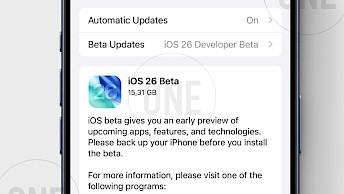Enhancing Transaction Security: The Role of Blockchain in Safeguarding Digital Payments

In a progressively internet-riddled world, the safety of online transactions has become paramount. With the intense growth of e-commerce and e-payments, guaranteeing that transactions are protected from fraud and cyber attacks is really important.
Blockchain technology has recently shown up as a revolutionary solution to enhance transaction security, offering a decentralized and transparent way to protect cyber payments. This article will delve into the role of blockchain in securing digital transactions, its benefits and challenges, as well as how tools like virtual private networks (VPNs) can further improve the security of online transactions.
Understanding Blockchain Technology
Blockchain is a distributed ledger technology that allows for the secure and transparent recording of transactions across a network of computers. Each transaction is grouped into a block and linked to the previous block, forming a chain. This decentralized structure ensures that no single entity controls the data, making it highly resistant to tampering and fraud.
Key Features of Blockchain
Here are some of the key features of blockchain.
- Decentralization: Unlike traditional centralized systems, blockchain operates on a peer-to-peer network. This means that data is stored across multiple nodes, reducing the risk of a single point of failure.
- Transparency: All transactions recorded on the blockchain are visible to all participants. This transparency helps audit and verify transactions, reducing the likelihood of fraud.
- Immutability: Once a transaction is recorded on the blockchain, it cannot be altered or deleted. This immutability ensures the integrity of the transaction history.
- Security: Blockchain uses advanced cryptographic techniques to secure data. Each block contains a unique hash that links it to the previous block, creating a secure chain of transactions.
The Role of Blockchain in Enhancing Transaction Security
Blockchain technology offers several benefits, making it an ideal solution for securing digital payments.
Fraud Prevention
Blockchain's decentralized nature and transparency make it difficult for fraudsters to manipulate the transaction history. Every transaction is verified by multiple nodes before being added to the blockchain, ensuring its authenticity. This reduces the risk of fraudulent activities, such as double-spending and chargebacks, which are common in traditional payment systems.
Data Integrity
The immutability of blockchain ensures that it can't be changed once a transaction is recorded. This guarantees the integrity of transaction data, making it a reliable source of truth. Businesses and consumers can trust that the recorded transactions are accurate and tamper-proof.
Enhanced Security
Blockchain's use of cryptographic techniques provides robust security for digital payments. Each transaction is encrypted, and the use of public and private keys ensures that only authorized parties can access the transaction details. This level of security is especially crucial for sensitive financial information.
Decentralized Control
By eliminating the need for a central authority, blockchain reduces the risk of data breaches and cyber attacks targeting centralized systems. The distributed nature of blockchain means that even if one node is compromised, the integrity of the entire network remains intact.
Applications of Blockchain in Digital Payments
Blockchain technology is being adopted across various sectors to enhance the security of digital payments.
Cryptocurrency Transactions
Cryptocurrencies like Bitcoin and Ethereum are built on blockchain technology. These digital currencies offer a secure and transparent way to conduct transactions without the need for intermediaries. Blockchain ensures that cryptocurrency transactions are fast, secure, and cost-effective.
Cross-Border Payments
Conventional cross-border payment processes often face challenges such as sluggishness and high costs due to intermediaries. Blockchain simplifies this process by facilitating transactions between parties, thereby lowering expenses and boosting transaction speed.
Smart Contracts
Smart contracts refer to self-executing contracts, where the terms are coded directly into the agreement. These contracts operate on technology. By automating these processes, the risk of errors and fraud is minimized, thereby boosting agreement security.
Challenges and Considerations
Despite blockchain's advantages in terms of transaction security, it comes with its challenges.
Scalability
One significant issue networks face is scalability, in particular, when dealing with high transaction volumes. It is crucial to ensure that the network can handle some transactions per second for adoption.
Regulatory Compliance
The regulatory environment surrounding the blockchain and cryptocurrencies is still evolving. Businesses must navigate frameworks to comply with financial regulations effectively.
Adoption and Integration
Integrating blockchain technology into existing systems poses challenges for businesses. To take advantage of this technology, they need to invest in training and infrastructure.
Enhancing Security with VPNs
Besides utilizing technology, incorporating a virtual private network (VPN) can further bolster transaction security. VPNs establish an encrypted path for internet traffic, safeguarding information from interception and cyber threats.
VPNs and Blockchain
When accessing blockchain networks, a VPN can add an extra layer of security by masking the user's IP address and encrypting the data transmitted over the internet. This is particularly useful for individuals and businesses concerned about privacy and security.
For those looking to enhance their online security, the Mysterium VPN spring sale offers a great opportunity to invest in a reliable VPN service. Mysterium VPN provides robust encryption, ensuring that your online activities and transactions remain secure from prying eyes.
Conclusion
The merging of technology with payments is reshaping the realm of transaction security. Blockchain's decentralized, transparent, and secure features make it an excellent solution for preventing fraud, maintaining data integrity, and improving transaction security.
While there are challenges, the potential advantages of using blockchain to safeguard payments are vast. Furthermore, combining blockchain with security measures such as VPNs can add a layer of protection for sensitive data and bolster privacy.
As digital payments continue to expand, utilizing technologies like blockchain and VPNs will be essential to establishing a trustworthy economy. Mysterium VPN offers an opportunity to enhance your security, ensuring your digital transactions are safeguarded in an increasingly interconnected world.





